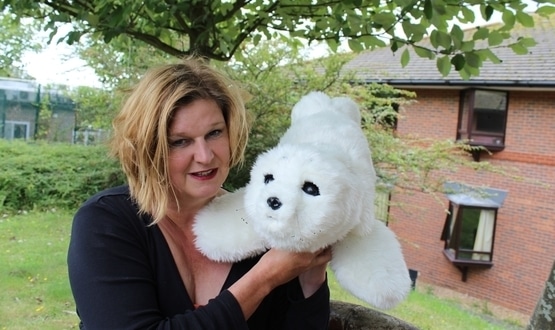PARO the robotic seal one step closer to being introduced to UK hospitals
- 14 March 2018

A robotic seal pup that responds to voice and touch interactions is a step closer to being introduced to dementia wards in the UK.
PARO, a fluffy robot that uses artificial intelligence (AI) technology to learn from its surroundings and responds to its name, has been studied studied by the University of Brighton for its potential use as a therapeutic intervention for people with dementia and learning disabilities.
Hygiene and cleaning tests were carried out over nine months by Dr Kathy Martyn, principal lecturer in the University’s School of Health Sciences, on a 10-bed dementia ward run by Sussex Partnership NHS Foundation Trust, to determine whether the technology could be safely used.
PARO has now been cleared for use.
Lead researcher Dr Penny Dodds, who recently moved from the university to the charity Dementia UK, said: “To our knowledge, this was the first testing of the infection prevention and control aspects in the world and we are delighted with the results.
“We have demonstrated that, under controlled conditions, PARO was safe within the hospital setting for an acute care dementia unit. It is hoped that this can allay concerns from those who have been hesitant about using PARO in the NHS.
“It is anticipated that PARO will receive Medical Devices Status in the UK shortly and the Distributor is preparing PARO for the UK market – we could be seeing PARO on wards throughout the country in the not-too-distant future.”
PARO was invented by Professor Takanori Shibata from Japan and research has shown that the seal lessens stress and anxiety, promotes social interaction, facilitates emotional expression, and improves mood and speech fluency. (see video below)
In October 2016, Digital Health News visited Surrey and Borders Partnership NHS Foundation Trust in Guildford, which lead a test bed to trial the use of the Internet of Things in dementia care.
https://www.youtube.com/watch?v=uFMenahpJtI




1 Comments
Previous trials using a live seal pup had to be halted due to complaints from animal welfare activists.
Comments are closed.